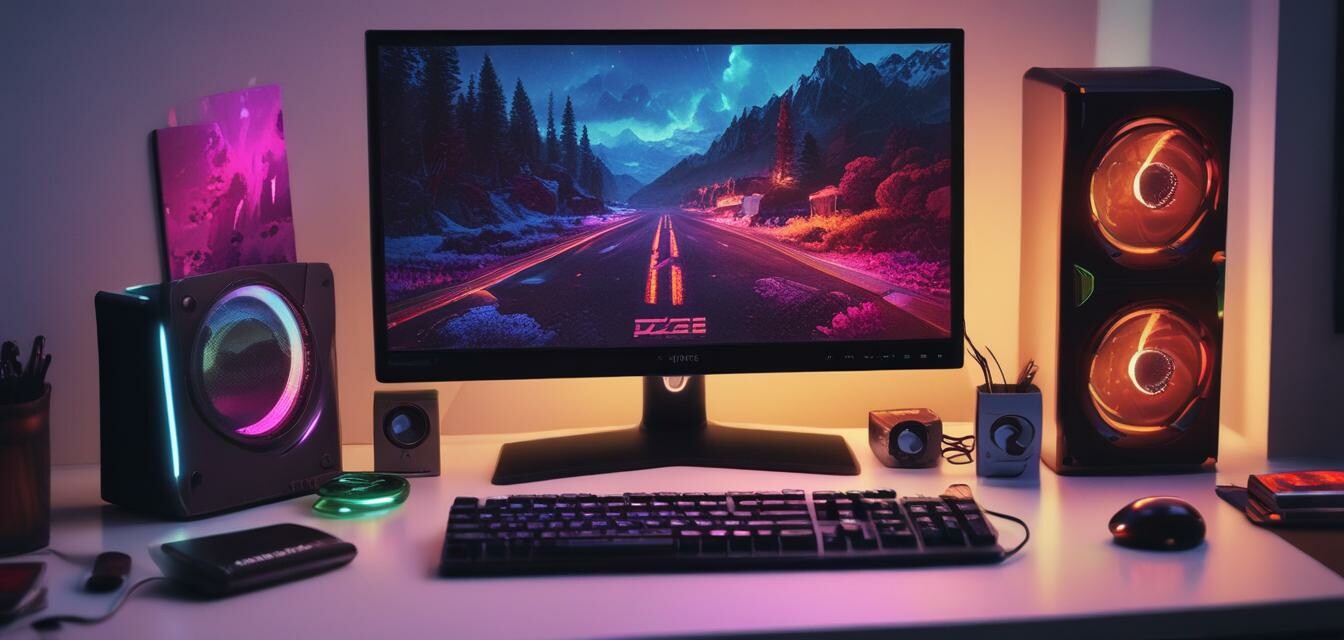
Creating a Budget Gaming PC: Key Components
Key Takeaways
- Planning your budget is essential for building a cost-effective gaming PC.
- Choosing the right components can significantly improve gaming performance.
- Balancing price and quality is crucial to avoid overspending.
- Consider future upgrades to ensure longevity.
Building a gaming PC can appear daunting, especially for those on a budget. However, it is entirely possible to create a powerful gaming setup without spending a fortune. In this guide, we'll discuss the key components you need for a budget-friendly gaming PC and how to select them wisely. By the end, you'll be equipped to make informed decisions and enjoy your gaming experience without breaking the bank.
Understanding Your Budget
First and foremost, set a clear budget for your gaming PC. The ideal price range for a budget gaming rig typically falls between $500 to $800. This allows for decent performance while keeping costs manageable. Consider what you are willing to spend and prioritize components based on your gaming needs.
Essential Components for a Budget Gaming PC
Here’s a breakdown of the critical components you'll need for your budget gaming PC:
| Component | Suggested Brand/Model | Price Range |
|---|---|---|
| CPU (Processor) | AMD Ryzen 5 or Intel i5 | $150 - $250 |
| GPU (Graphics Card) | NVIDIA GTX 1660 or AMD RX 580 | $200 - $300 |
| RAM (Memory) | Corsair Vengeance 16GB (2x8GB) | $60 - $100 |
| Motherboard | MSI B450 or ASUS TUF B450 | $70 - $150 |
| Storage | SSD 500GB | $50 - $100 |
| Power Supply Unit (PSU) | EVGA 600W or Corsair 550W | $50 - $90 |
| Case | Mid-tower case | $40 - $80 |
Choosing the Right Components
In this section, we’ll delve deeper into each component and what to look for to ensure you get the best value for your money.
CPU (Processor)
The CPU is the heart of your PC. A good balance of performance and price can be found in mid-range processors like the AMD Ryzen 5 or Intel i5. These CPUs provide sufficient power for gaming and multitasking without exceeding your budget.
GPU (Graphics Card)
Your graphics card determines how well games perform visually. The NVIDIA GTX 1660 and AMD RX 580 are excellent budget options that provide a solid gaming experience. Remember to check for current market prices, as GPU prices can fluctuate.
RAM (Memory)
For gaming, 16GB of RAM is generally considered the sweet spot. Opt for dual-channel sets for improved performance and responsiveness. Aim for reputable brands like Corsair or G.Skill to ensure reliability.
Motherboard
Your motherboard must fit your chosen CPU and have the necessary slots for future upgrades. Look for boards with good reviews and essential features without unnecessary extras that inflate the price.
Storage
An SSD can dramatically improve boot times and game loading speeds. A 500GB SSD is a cost-effective choice, but if you prefer more storage at a lower price, consider a traditional HDD as a secondary storage option.
Power Supply Unit (PSU)
Selecting a reliable PSU is crucial to prevent component damage. Brands like EVGA and Corsair provide solid options. Ensure that it provides enough power for your setup and has good reviews on safety and longevity.
Case
Your case should have sufficient airflow and space for future upgrades. Mid-tower cases offer a good balance of size and expandability. Look for one that fits your aesthetic preferences as well.
Planning for Future Upgrades
While building your budget gaming PC, consider potential future upgrades. Selecting components that allow for scalability will let you enhance your experience without needing an entirely new system. Always double-check compatibility before purchasing additional parts.
Accessories to Consider
Once your gaming PC is built, don't overlook essential accessories that can improve your overall gaming experience. Here are a few items to consider:
- Gaming monitor - Prioritize refresh rates for smoother visuals.
- Gaming keyboard - Mechanical options provide tactile feedback.
- Gaming mouse - Look for programmable buttons and adjustable DPI.
- Gaming headset - Good audio can enhance your gaming experience.
Conclusion
Building a budget gaming PC is entirely feasible if you focus on essential components and shop wisely. Remember, the gaming experience is shaped not just by the power of your hardware but also by the enjoyment you find in assembling and customizing your own setup.
Pros
- Cost-effective gaming experience.
- Ability to upgrade individual components.
- Learning experience in PC building.
Cons
- Requires time and research.
- Potentially steep learning curve for beginners.
- Market price changes can affect budget.
